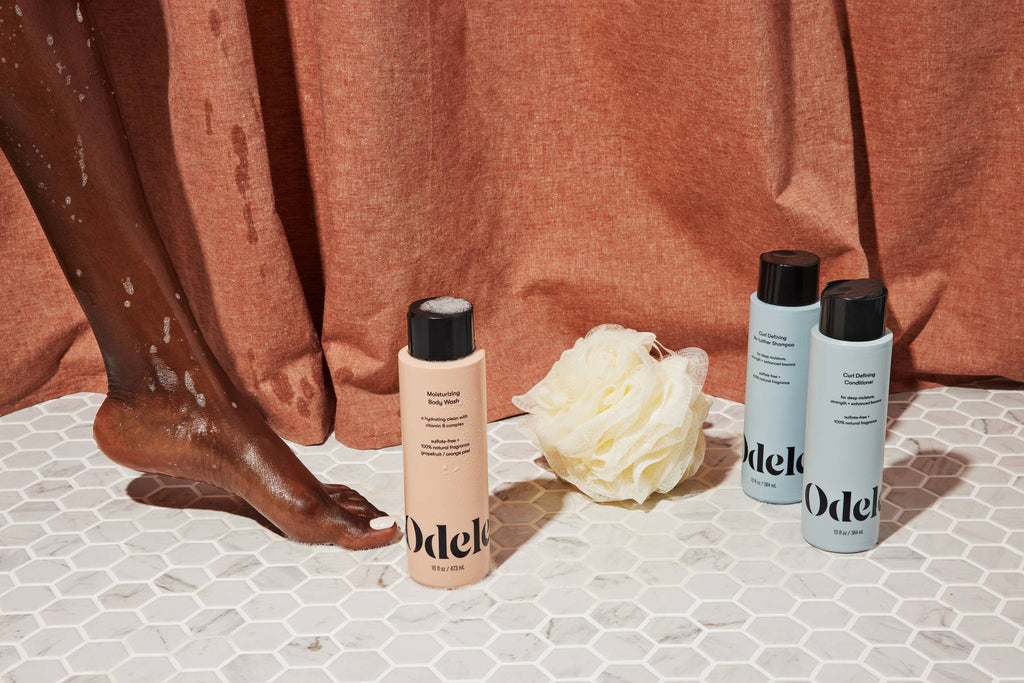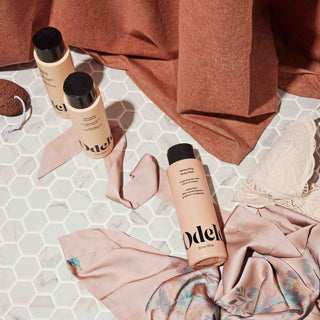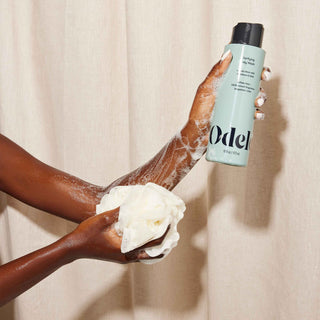Are you a morning showerer or a night showerer? Or… are you not a showerer at all? No, we’re not talking about people who prefer a bubble bath (although we see you and appreciate you!), we’re talking about people who… aren’t as into the cleansing ritual as others. People who shower when absolutely necessary, instead of showering because there’s nothing they love more than a fresh rinse.
While getting clean is part of many folks’ daily routine, some—especially as work-from-home situations continue to thrive—have begun to question the process, forgoing their daily shower for an every-few-days (or perhaps even less) wash, rinse and repeat.
So, is this OK? Yes, and it might even be a good thing. Read on for all the dirt on showering, and do with it what you will.
Why do we shower?
The obvious answer? Hygiene! But less obvious factors, such as racism and classism, have also strongly influenced our society’s hygiene standards—many of which, it turns out, have little to do with actual science. In an interview with NPR, health reporter James Hamblin, who wrote a book on his decision to stop showering in 2016, dove into these complexities:
“There's a distinction between ‘hygiene’ and ‘cleansing rituals’ that's especially important in this moment. ‘Hygiene’ is the more scientific or public health term, where you're really talking about disease avoidance or disease prevention behaviors,” Hamblin said. “But a lot of the other things that we do are class and wealth signifiers … which actually have nothing to do with disease avoidance or disease transmission. They're really much more of a personal or cultural preference.”
A lot of this stems from early soap ads that connected cleanliness with progress, purity and moral superiority. Many soap companies fabricated social and health concerns—often geared toward women—to sell products. Ads also used racial stereotypes to encourage frequent bathing, portraying dark skin as "dirtiness" soap could wash away.
Even so, daily cleansing is a relatively new phenomenon. Environmentalist Donnachadh McCarthy, who contributed to a 2021 New York Times article about people who cut down on showering during the pandemic, grew up bathing once a week and, while he eventually began taking daily showers, decided to cut back again after he visited the Amazon jungle in 1992 and began considering the environmental—and personal—impact of his cleansing ritual.
“It’s not really good to be washing with soap every day,” said McCarthy, who has returned to showering once weekly.
Perhaps unsurprisingly, many health experts agree. Dr. Elaine Larson, an infectious disease expert at Columbia University, told Time in 2016 that showering is mostly for aesthetic reasons. “People think they’re showering for hygiene or to be cleaner, but bacteriologically, that’s not the case.”

So, how often should I shower?
If we’re talking purely for cleanliness, once or twice a week is more than enough.
“Your body is naturally a well-oiled machine,” assistant professor of dermatology at George Washington University Dr. C. Brandon Mitchell told Time. “A daily shower isn’t necessary.” (Anyone else relieved?! 🤚)
Mitchell also noted that washing up can get rid of your skin’s good, natural oils, potentially disrupting its biome and population of immune system-supporting bacteria. The case against showering too much holds especially true for people with sensitive skin or skin conditions such as eczema, psoriasis, rosacea, alopecia and seborrheic dermatitis.
How about my kids?
We asked pediatrician Dr. Sarah Greene, and she confirmed daily bathing isn’t necessary for most kids, either. “As a general rule, if they’re not dirty, don’t bathe them,” Dr. Greene says. “You have to know your kids and what works best for them.”
My teenager, too?
That’s, erm, a bit more complicated. Hormone spikes during puberty make the body’s sebaceous (oil) glands extra active—and that’s when greasy hair, acne and stinky pits come into play. Teens dealing with extra oily skin may need to bathe and/or wash their face more frequently to keep blemishes and B.O. under control. If they’re coming home sweat-drenched from soccer practice every night, daily showers (with or without soap) may even be necessary.
Is it okay to shower less?
As long as you’re keeping up with your personal hygiene enough to not get yourself (or others) sick, you can shower as often as you please. Hamblin’s decision to stop showering for good was largely about saving money on expensive products (guess he wasn’t using Odele—we’ll have to send him a care package), conserving water and regaining time:
“I think that many people—not everyone—could do less, if they wanted to,” he told NPR. “We are told by marketing, and by some traditions passed down, that it's necessary to do more than it actually is. […] If you could get by doing less without suffering social or professional consequences, and [your routine] isn't bringing you any value or health benefit, that's the space where I say, ‘Why not? Why not try it out?’”
Still, cutting down on showers doesn’t mean you have to cut down on cleansing. Using a soapy washcloth to wipe down your sweatiest zones (i.e., the underarms, groin and feet) can be a perfectly hygienic alternative to a full-body routine. (Hamblin still rinses off any time he’s visibly dirty and regularly washes his hands—so important!)
Is it okay to shower daily?
Do you, but remember not to go overboard with the harsh soaps and scrubbing—especially if you have sensitive skin. If you do choose to shower more often, try to keep it short (dermatologists recommend a 10-minute cap) to avoid stripping moisture from your skin. Use gentle, pH-balanced products like the ones in our body wash line, and moisturize often.

How often should I wash my hair?
Ooh, our very favorite question. We dive deep into this topic in another blog post (read it here!), but the short answer is that everyone’s needs are different. Your optimal shampoo schedule will depend on your hair type, age, lifestyle, styling habits and a few other factors.
Tips for a healthy shower routine
As we’ve hinted above, how you shower is just as important as how often you shower. Here are some tips for making the most of your time in the tub:
1. Temp
Stay away from hot water, as it can strip protective oils and sebum from your skin. Warm is fine, and cold—if you can handle it—is awesome.
2. Time limit
Shorter is better when it comes to saving water (and making the most of your valuable time!). Five to 10 minutes is plenty of time to cleanse and hydrate your skin.
3. Task masters
If you’re going to use a loofah, keep it clean and let it air-dry between uses. And when it comes to stocking your shower, look for dermatologist-tested and pH-balanced products. We’ve got you.
4. Trajectory
When it comes to lathering, focus on areas of your body with the most, well, stink. Post-shower, make sure to moisturize; you don’t even need to wait to dry off.









